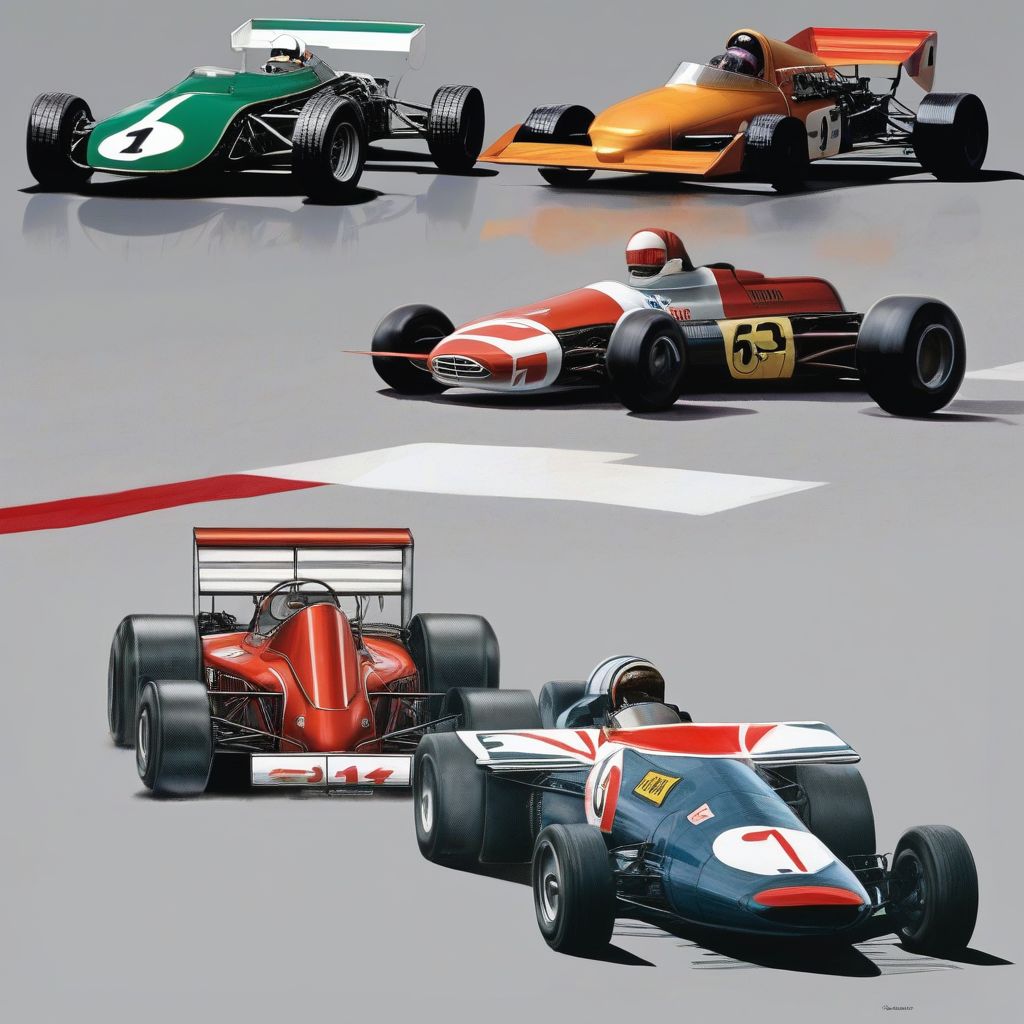The Thrilling World of Formula 1: A Guide to the Apex of Motorsport
Formula 1, often referred to simply as F1, is the pinnacle of motorsport, captivating audiences worldwide with its speed, skill, and drama. From the roaring engines to the nail-biting finishes, F1 is a sport that pushes the boundaries of engineering and human performance. In this comprehensive guide, we'll delve into the fascinating world of Formula 1, exploring its history, rules, key players, and the adrenaline-pumping spectacle that makes it so captivating.
A History of Speed and Innovation
The roots of Formula 1 can be traced back to the early days of motor racing, with the first Grand Prix races held in the early 20th century. The sport as we know it today, however, was officially established in 1950 with the inaugural Formula One World Championship.
The early years of F1 were marked by innovation and the development of cutting-edge technology. The iconic cars of the era, like the Ferrari 125 S and the Alfa Romeo 158, were pioneering machines that pushed the limits of performance. As the sport evolved, so did the cars, becoming faster, more sophisticated, and more aerodynamic.

The Rules of the Game
Formula 1 is a complex sport with a detailed set of rules that govern everything from the design of the cars to the conduct of the race. Here are some of the key aspects:
The Cars: F1 cars are marvels of engineering, meticulously designed to achieve maximum speed and performance. They feature powerful engines, advanced aerodynamics, and sophisticated suspension systems. The cars must comply with strict regulations regarding engine size, weight, and safety features.
The Teams: F1 teams are highly organized and structured, with a team of engineers, technicians, and mechanics working tirelessly to ensure their cars are at peak performance. The teams are responsible for developing, building, and maintaining the cars, as well as employing the drivers.
The Drivers: F1 drivers are among the most talented and skilled athletes in the world. They must possess incredible reflexes, mental fortitude, and the ability to handle the extreme pressures of racing at speeds of over 200 miles per hour.
The Races: F1 races are held on a variety of circuits around the world, each with its own unique layout and challenges. The races typically consist of 50 to 60 laps, with points awarded to the top 10 finishers.
The Key Players and Rivalries
Formula 1 is a sport steeped in tradition and rivalry, with legendary drivers and teams leaving an indelible mark on the sport's history. Some of the most iconic names in F1 include:
Lewis Hamilton: The seven-time world champion is arguably the greatest F1 driver of all time. His incredible skill and consistency have made him a dominant force in the sport.
Michael Schumacher: The seven-time world champion is another legend of F1, known for his relentless determination and aggressive driving style.
Ayrton Senna: A three-time world champion, Senna was a charismatic and talented driver, known for his daring overtaking maneuvers and fierce competitive spirit.
Ferrari: The Italian team is one of the most successful and prestigious teams in F1 history, with a rich legacy of victories and legendary drivers.
Mercedes: The German team has dominated F1 in recent years, winning eight consecutive constructors' championships from 2014 to 2021.
The Thrill of the Race
The spectacle of Formula 1 is undeniable. The roar of the engines, the blur of speed, and the unpredictable nature of the races create a truly immersive experience for fans. The thrill of watching drivers battle for position, push their cars to the limit, and overcome challenging conditions is what makes F1 so captivating.
Overtaking Maneuvers: F1 races are filled with breathtaking overtaking maneuvers, as drivers utilize their skills and the strengths of their cars to gain an advantage over their rivals.
Pit Stops: Pit stops are a crucial part of F1 racing, where drivers change tires and make adjustments to their cars. The speed and precision of pit crews are essential for teams to gain a competitive edge.
The Unpredictable Nature of the Sport: F1 is a sport where anything can happen. From mechanical failures to crashes, the unexpected can often swing the outcome of a race.
The Future of Formula 1
Formula 1 continues to evolve, with new technologies, rules, and circuits shaping the future of the sport. The introduction of the hybrid power units has made the cars even more efficient and sustainable. The sport is also expanding its global reach, with new races being added in emerging markets.
The future of Formula 1 looks bright, with continued technological advancements, thrilling races, and a new generation of drivers ready to make their mark on the sport. The sport's ability to blend speed, skill, and innovation continues to captivate fans worldwide, making it a true testament to the power and potential of motorsport.